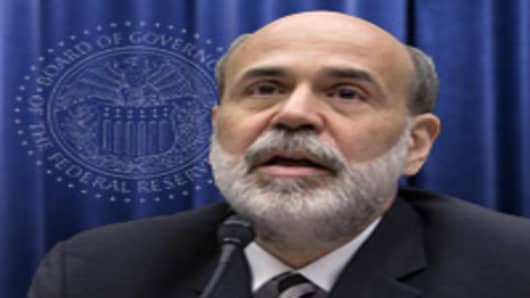A weaker dollar at least until next year and government intervention in the markets are to be expected as President Barack Obama reappointed Ben Bernanke as Federal Reserve chairman, analysts and investment strategists told CNBC Tuesday.
Obama will interrupt his vacation to make the announcement at 9 am New York time, with Bernanke at his side, a White House spokesman said Monday. Market reaction was muted in Asia and Europe early Tuesday.
"I think we're probably going to see a move away from the US dollar, ultimately Ben Bernanke has pumped $1 trillion into the economy which certainly has inflationary expectations attached to it; it's a great increase to money supply," Timothy Connors, corporate FX manager at Custom House, said.
"Ultimately we are going to see a devaluation of the US dollar on the back of that, Connors added. "Really what we'll see probably is a move away from the US dollar and into more risky currencies like the Australian dollar for example."
Not that a weaker dollar would be necessarily bad news for the US, where Bernanke is hailed by many, including former General Electric CEO Jack Welch, as a "national hero" for saving the financial system from collapse and averting an economic depression. (GE is CNBC's parent company)
The famed US consumer, who has supported the world economy until before the crisis and makes up 70 percent of the US economy, is scared by the high unemployment, plummeting house prices and mountains of debt and has stopped spending.


